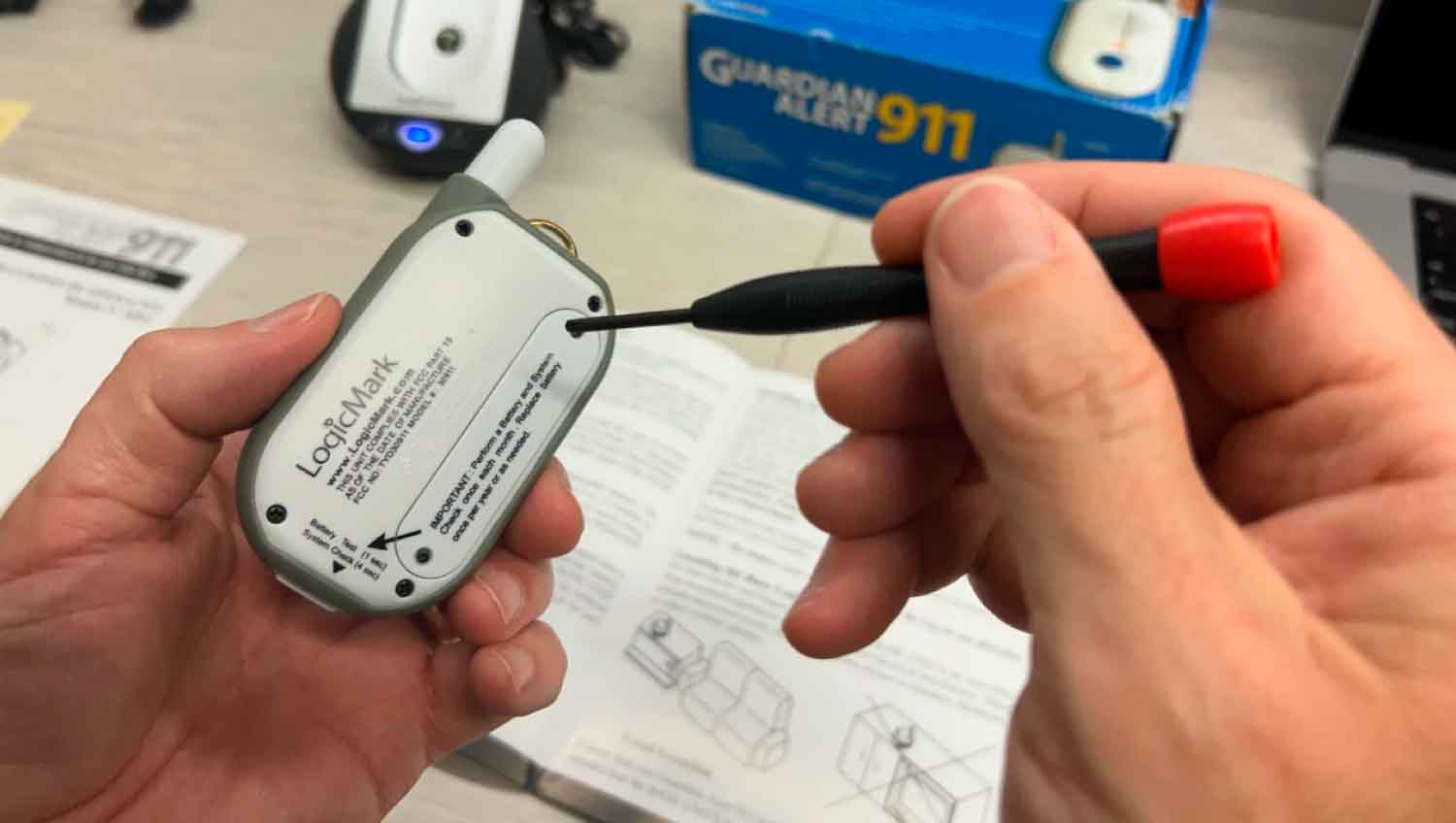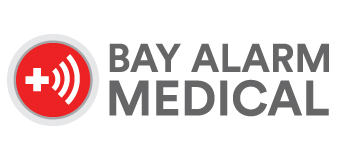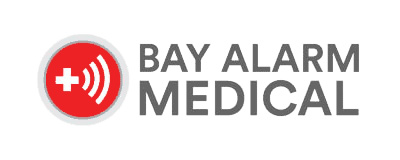MedicalAlertBuyersGuide.org is an independent review site. We may earn compensation from the providers below. Learn More
Best Mobile Medical Alert Systems of 2025
Life Saving Mobile Alert Systems for Mom & Dad
What Is a Mobile Medical Alert System?
A mobile medical alert system is a compact medical alert device that connects users to a helpline in case of a medical or other emergency via cellular service. Like a mobile phone, you can take the medical alert system with you wherever you go, so long as you stay in an area with good cell coverage.
Mobile medical alerts are a good choice for seniors who aren’t homebound. They provide an enhanced level of safety while you move around town, walk around the neighborhood, or simplyspend time in your yard. They work anywhere in the United States that has cellular coverage.
Mobile medical alerts are standalone systems designed to work without an existing mobile phone. This makes them different from many of the “no fee” medical alerts on the market. A true mobile medical alert system includes a monthly service fee that pays for both cellular service and 24/7 emergency operators who monitor your device and respond in case of an emergency.
Why Choose a Mobile Medical Alert?
According to a survey by AARP, it is getting harder for families to manage care for aging relatives. Mobile medical alert systems may help. Besides their compact size and mobility, mobile medical alert systems typically include three features that aren’t found in traditional in-home medical alert systems:
- Automatic Fall Detection
- GPS Tracking
- Caregiver Tracking
These features may make it possible for older adults to stay independent longer and help caregivers keep their loved ones safe.
Automatic fall detection is a key feature of a mobile medical alert systems.Traditional medical alert devices require the wearer to push a button in an emergency. But that may not be possible if a fall incapacitates the wearer due to a head injury or other issue. Automatic fall detection is an important safeguard against this. Note the fall detection is typically an optional feature for a small extra monthly fee. We think this feature is well worth it.
GPS tracking allows your medical alert monitoring company to know your location and communicate that to emergency responders. Emergency operators can give your exact address or latitude and longitude coordinates if you are in a park or other location without a street address.
Caregiver tracking allows people you trust to log into an online portal and view your location at any time, whether during an emergency or in daily life. This can be helpful if the person wearing the medical alert is prone to wandering due to dementia or Alzheimer’s disease.
Mobile Medical Alerts vs. Medical Alert Watches
Mobile medical alerts are the second generation of medical alert systems. The first generation of personal emergency response systems (PERS) were in-home medical alerts that worked through your existing telephone line. Mobile systems break free of the home landline and work anywhere you might go in your daily life.
Today there is a growing trend toward a third generation of medical alert systems: medical alert smartwatches. If smartwatches are the newest breed of medical alert, why would you want a second-generation mobile medical alert?
The reasons are simple: price and automatic fall detection.
Medical alert watches are generally more expensive than mobile systems. In addition, mobile medical alerts have a mature implementation of automatic fall detection whereas medical alert watches still face challenges with fall detection. Indeed, at the time of writing, only Bay Alarm Medical has a smartwatch that is advanced enough to offer automatic fall detection.
We see compelling advantages to mobile medical alerts. We think this type of system is the best fit for most people seeking a medical alert system.
How We Chose the Best Mobile Medical Alert
To choose the best medical alert systems, our team performed over 350 hours of research and hands-on testing. We purchased all the medical alerts included in this review and evaluated all steps of the experience: from buying the system, to setting it up, and real-life testing, including simulating falls.
We focused not just on the technical aspects of the system, but also the quality of service provided by the vendor. We called sales teams to ask a standard set of questions, evaluating both the quality of their answers and the level of sales pitch included (pushy, high pressure sales tactics are a no-no). During our simulated falls, we even evaluated the interaction with those emergency operators who called to check on us.
Finally, we returned all of the systems after testing, asking for a timely refund. That allowed us to evaluate the fairness of each vendor’s return policy. For more information, read our disclosure page.
What Should You Expect To Pay? What's Included?
When buying a medical alert system, you should expect to pay an initial startup cost followed by a monthly monitoring fee.
To accurately compare costs, you need to combine a system’s startup cost with 12 months of monitoring to get the true First Year Cost of Ownership.
Among the systems we review here, that First Year Cost of Ownership ranged from $469.75 to $909.30, with the average being $708.88.
The startup cost – which is sometimes called an activation fee or a programming fee – covers the cost of the medical alert device, plus shipping.
Your monthly monitoring fee covers 24/7 monitoring by the vendor’s emergency operators. While it may be tempting to skip this monthly cost and opt for a no-fee medical alert system, we strongly discourage this, especially for mobile medical alert systems. There is great value in having an emergency operator who knows your exact location and can communicate with emergency responders if you aren’t able to speak.
Your monthly monitoring cost may include additional fees for optional add-ons such as wall buttons, optional spouse monitoring, or extended warranty plans.
Because of different pricing structures, it can be difficult to compare the cost of different medical alert systems. Some companies have low start-up fees, but then charge more for monthly monitoring. As a rule, you should pay more attention to a company’s monthly fee and less to its startup cost.
Startup costs range from $0 to $162, with the average startup price for the systems we tested being $91.42.
Monthly monitoring with optional fall detection included ranges from $34.98 per month to $64.95 per month, with the average being $51.46 per month.
The table below shows what you should expect to pay for each mobile medical alert system we tested.
Price Comparison, First Year Cost of Ownership
| Company | System | Startup Cost | Monitoring | Fall Detection | First Year Total Cost |
|---|---|---|---|---|---|
| Bay Alarm Medical | SOS Mobile | $69.30 | $34.95/month | $10.00/month | $620.70 |
| MedicalAlert.com | Mobile | $124.90 | $47.95/month | $10.00/month | $820.30 |
| Lifeline | On The Go | $129.90 | $49.95/month | $15.00/month | $909.30 |
2 - First Year Total Cost assumes a monthly subscription plan with fall detection.
How We Tested: Hands-On Testing + In-Depth Reviews
Our team dedicated 12,000 hours to researching 16 top medical alert brands to identify the best systems. After that, we spent more than 520 hours testing them firsthand. We secret-shopped each provider, purchased each system, and carefully assessed every stage of the experience: from buying and setup to real-world scenarios, countless button pushes, and testing auto fall detection,
We paid close attention to both the technical performance of the systems and the level of customer service provided by the companies. During consultations, we noted which brands offered honest assessments versus those focused on maximizing our monthly subscription costs. We also flagged companies with aggressive sales tactics, startup costs, restocking fees, and hard-to-manage return policies. While simulating falls, we evaluated how emergency operators responded and followed up with us.

Best Mobile Medical Alert Systems of 2024
Mobile Medical Alert Systems Provider Overview
Bay Alarm Medical SOS Mobile
The SOS Mobile medical alert may be our favorite of Bay Alarm Medical’s systems, and it is our #1 pick for the Best Mobile Medical Alert System. The system provides manyfeatures at a fairly low price point, making it a good value.
While we don’t like the $99 hardware cost paid up-front, Bay Alarm Medical charges only $29.95 for monthly monitoring. That’s $20/month less than other companies charge for the same service. With an additional $10 per month for optional fall detection (something we highly recommend), that brings the first-year cost of owning the system to $578.40. Among the systems we tested, only Lively Mobile+ costs less than this.
The SOS Mobile offers a compact, sleek design, with the option to wear the device around your neck or on your hip. We like that automatic fall detection is integrated into the device and doesn’t require you to wear a separate pendant just for that optional feature. We found the automatic fall detection to work well, setting off alarms on hard falls but not triggering false alarms for minor bumps.
While we had some minor issues with the initial setup, everything else about the system was easy to use. We found its GPS location tracking to be responsive and accurate, though we wish it showed your street address in addition to latitude/longitude coordinates.
The Caregiver Tracking portal is somewhat buried under the company’s online account management. However, it does a good job of showing the wearer’s location. We found that GPS reported our location to within 100 feet of our true position.
Lifeline "On The Go" Mobile Medical Alert System
Lifeline On The Go is a GPS-enabled medical alert system that includes built-in automatic fall detection. As the company that first brought medical alert systems to the U.S. in 1974, Lifeline has a long history of innovation. In 2021, it became part of ConnectAmerica, the same group behind MedicalAlert.com.
The initial costs for Lifeline On The Go are relatively high, with a $129.90 startup fee, a $49.95 monthly monitoring charge, and an additional $15.00 per month for fall detection. This brings the total first-year cost to $909.30.
In our testing, Lifeline On The Go proved to be a dependable device with reliable fall detection, supported by outstanding customer service. The company’s sales and support teams stood out, going above and beyond to secure an AARP discount for us.
For those seeking a mobile medical alert system backed by a reputable company known for top-tier service, Lifeline On The Go is an excellent option.
Read our full review of Lifeline On-The-Go.
MedicalAlert.com Mobile System
While MedicalAlert.com was once a budget-friendly option for medical alert systems, its 2025 pricing now places it among the more expensive choices on the market.
The Mobile System with Fall Detection starts at $47.95 per month for a monthly subscription or $39.95 per month with an annual plan. Fall detection is an additional $10 per month. Upfront costs include a $99.95 programming fee and $24.95 for shipping, making the initial investment relatively steep.
Over a year, the total cost of ownership for this system—including fall detection and monthly payments—amounts to $820.30. This is about 20% higher than the average cost of the six mobile systems we reviewed this year. While there are no long-term contracts, discounts are available for semi-annual and annual billing options.
The system includes standard features such as two-way communication, a mobile app for account management, and dependable fall detection. Users can wear the device as a pendant or wristband, but fall detection requires an additional pendant.
However, our tests uncovered significant GPS functionality issues. In one instance, the device took nearly 8 minutes to determine our location. When GPS worked, it was accurate, but the device only achieved a GPS lock about half the time. This is a critical drawback for a mobile alert system designed to operate both at home and on the go, where precise location tracking is essential in emergencies.
Additionally, the company’s return and refund process is overly complicated. Customers must ensure their return is received and follow up to confirm prompt refunds. It’s advisable to monitor your credit card statements closely if you choose to return the system.
Overall, while MedicalAlert.com’s Mobile System offers robust features, its high costs, inconsistent GPS performance, and challenging return process may be drawbacks for some users.
Read our full review of ConnectAmerica’s MedicalAlert.com Mobile System.
- https://www.ncbi.nlm.nih.gov/pmc/articles/PMC4499195/
- https://www.visn8.va.gov/VISN8/PatientSafetyCenter/research.asp
- https://visual.ly/community/Infographics/health/risks-costs-senior-fall-injuries
- https://www.cdc.gov/falls/data/falls-by-state.html
- https://tma.us/programs/fivediamond/
- https://www.cdc.gov/falls/facts.html
- https://www.ncbi.nlm.nih.gov/pmc/articles/PMC5699193/
- https://www.performancehealth.com/articles/the-impact-of-falls-on-the-elderly-infographic




